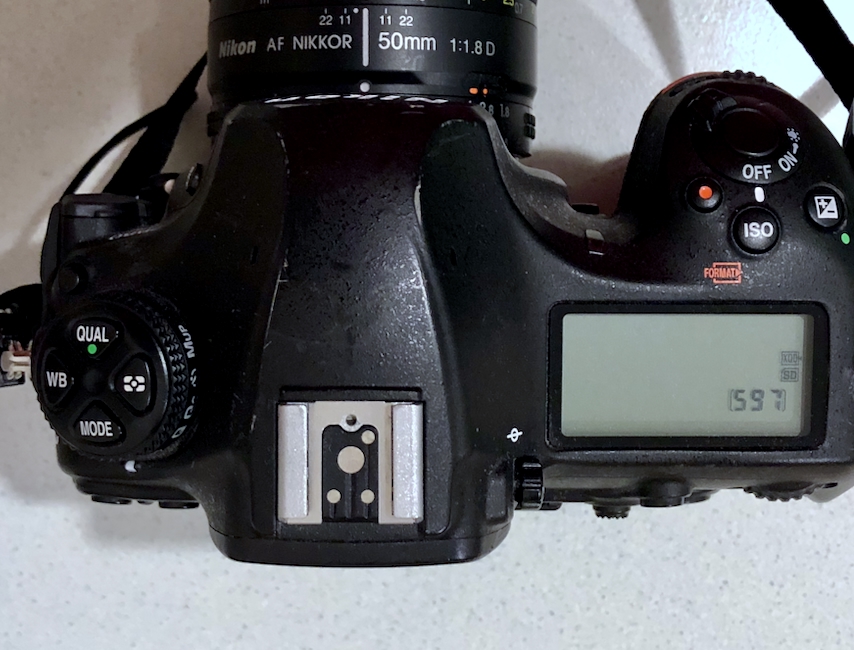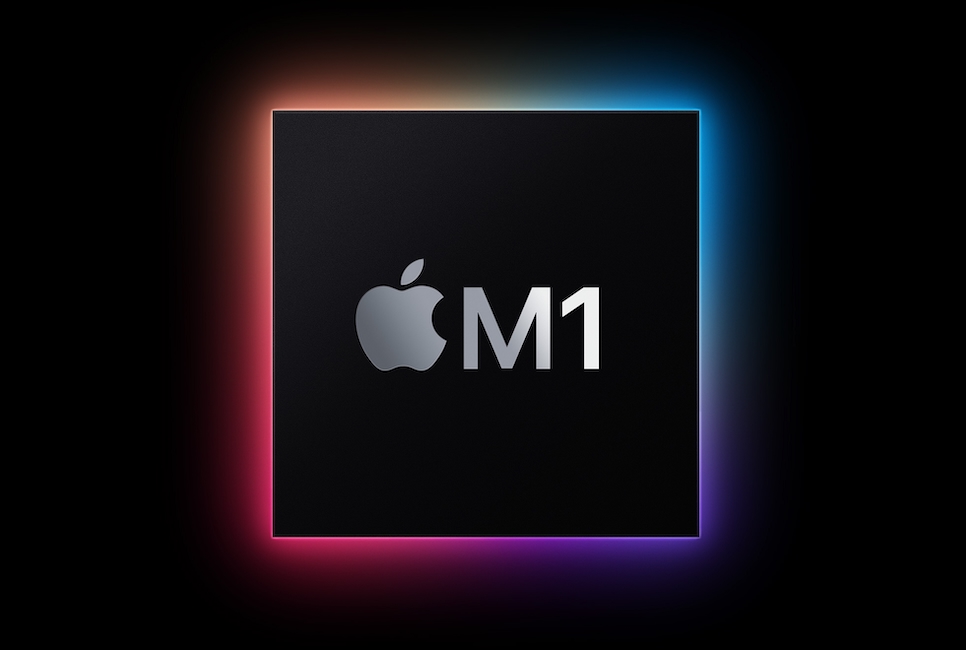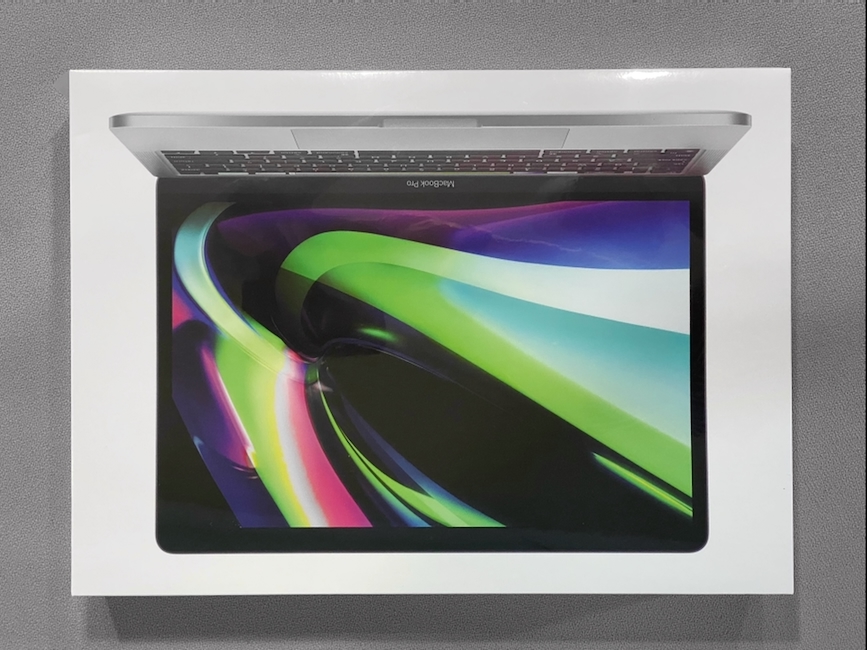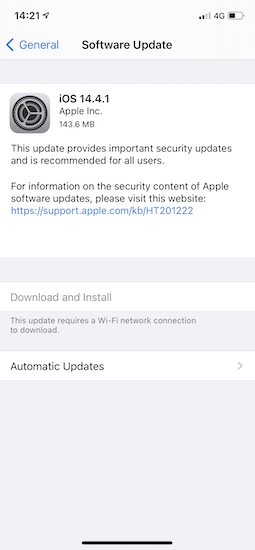|
|
Wednesday Diversion: Nikon Z9; Apple Highway Tax; Anticipation for new DevicesBy Graham K. Rogers
This week, Michael Zhang (PetaPixel) reports on a scam that targets those who post images online. The emails claim a copyright infringement and demand that the image is removed. To view the offending image, the recipient is asked to click a link. Apparently, Google Sites has been removing the links, but it may only be a short time before another method to entrap someone is devised. The article has no information about the real source of the emails, but the usual suspects should be considered.

Nikon D850 - Flagship DSLR
At work later I also saw that the iOS 14.4.1 update was shown as available. I looked at the iPad Pro and the iPadOS update was also shown (129.3MB). Both indicated that the update carried "security updates." I checked the Watch app on the iPhone and that showed watchOS 7.3.2 with security updates was ready for download (50.7MB). I would not be surprised to see something for the AppleTV too (there wasn't). With the network unreliability at the office, I decided to wait until I went home for these installations.
It is slightly different for developers as anyone who wants to distribute their apps to users of these devices has to go through the App Store. That means following Apple's stringent guidelines and being subject to a 30% fee for all sales, although that has been reduced in certain specific situations with regard to subscriptions. Those developers could also distribute their apps to phones that have been jailbroken I suppose, but that would limit sales considerably. Despite encouragement from some quarters, most see the risk involved: that walled garden isn't so bad after all. Developers could also distribute their apps on the Play Store. After all, some of those who are most critical of Apple's restrictions never tire of reminding us that Android has the largest user base. That is true, and surely is another argument against the monopoly peddlers. I have sometimes compared this with the distribution of news when I worked for a wholesale/retail group in London in the 1960s, where there were actually two charges: the publisher and the retailer (independent and company-owned). They had created a whole infrastructure and handled distribution as a total service: not free of course. In the days of paper that included warehousing, offices, manpower, trucks and other services. Although the medium is different, the overall service that Apple provides, including the phones and linked customers, is chargeable. To have all that for a 30% fee may be reasonable; but not for some developers and corporations who want it all for free (or as low as they can have it). In an interview, reported by Stephen Warwick (iMore) Twitter head of consumer products Kayvon Beykpour is somewhat pragmatic about what the fees are about:
But on the creator side, I think the platforms and the app stores, be it Apple or Google, they have these tried and true workflows and frameworks for developers to leverage when it comes to facilitating digital goods and in-app payments, and that comes with a cost, but it also comes with a lot of benefits that increase conversion and improve simplicity and decrease fraud. And so there are definitely pros and cons there. The EU pressure now includes a complaint in France regarding privacy requirements in iOS 14 that Apple denies (Stephen Warwick, iMore). This appears to be a complaint from a lobby group but has some of the same ideas that Facebook had aired earlier: quelle coïncidence. It was interesting to read this week that Apple has a acquired office space for up to 400 people in Cork (Tommy Barker, Irish Independent), where the company already has a significant presence, and has had since the earliest days of Apple's existence. Ireland is firmly part of the EU.

M1 chip - Image courtesy of Apple
However, Patently Apple have examined news from the Far East and the goalposts have moved slightly, with news of a 2nm process for Apple and the interesting comment that TSMC "secretly" built a 3nm facility for Intel (my italics) following a massive order from that company. As much as I think that Intel appeared complacent after the M1 release, it now appears that they have made the right moves here and this bodes well for many users, although it is not known which type of computer these are aimed at.
It was perhaps the right machine at the time and filled a gap after the trash can Mac Pro was not such a success and before the new cheesegrater Mac Pro was ready. It provided higher power for those who needed it and a good monitor, allowing the use of additional screens if needed. The speed may not be much more than the current M1 Macs, or those to come as we have been promised so the device has perhaps reached its end of useful existence. So that leads to some speculation about new devices that Apple could be announcing soon.

M1 MacBook Pro in the box
In recent months I looked at a couple of comparisons between the M-series Macs and current Intel machines. There have been some surprising results, particularly considering that the M1 Macs are clearly lower end and Apple has more to come. Andrew O'Hara (AppleInsider) edits video on a relatively basic Mac Pro and it had problems. As he was without the device, he switched to the MacBook Air. He writes that he was pleased and surprised with the device, accepting limitations such as storage (he swapped external disks) and Ethernet. For that, I have a USB-C adapter that serves me well for the occasions I want to avoid WiFi.
My older iPad Pro (just a year or so) has the A12X Bionic chip. A couple of rumors have appeared that suggest a 12.9" mini-LED iPad Pro is coming. That makes sense, but it is initially from one of those DigiTimes reports that I do not always trust and based on a leak. However, there are a number of reports about a new iPad case found at Target (Joe Rossignol, MacRumors), but the store said it could not be sold until 6 April.
Graham K. Rogers teaches at the Faculty of Engineering, Mahidol University in Thailand. He wrote in the Bangkok Post, Database supplement on IT subjects. For the last seven years of Database he wrote a column on Apple and Macs. After 3 years writing a column in the Life supplement, he is now no longer associated with the Bangkok Post. He can be followed on Twitter (@extensions_th) |
|


 Early Tuesday morning, Bangkok time, I saw that there was another update to Big Sur bringing it to version 11.2.3. Although it was mentioned by the Eclectic light Co. at that pre-dawn stage there was no information about what this contains. As it is a relatively small update, it is probably concerned more with security than changes to features. A later note from
Early Tuesday morning, Bangkok time, I saw that there was another update to Big Sur bringing it to version 11.2.3. Although it was mentioned by the Eclectic light Co. at that pre-dawn stage there was no information about what this contains. As it is a relatively small update, it is probably concerned more with security than changes to features. A later note from 